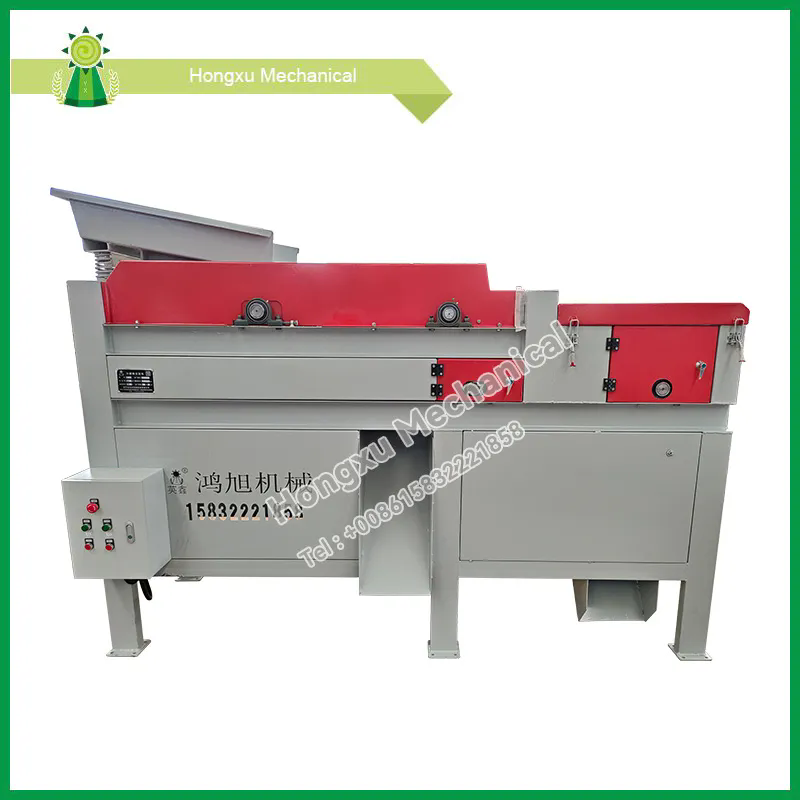What Are Separation Equipment and How Do They Revolutionize Industrial Processes?
2024-11-22
In today's fast-paced industrial world, separation processes play a critical role in maximizing efficiency and improving product quality. Whether it's purifying chemicals, recovering valuable resources, or separating materials for recycling, separation equipment is essential across various industries. But what exactly is separation equipment, and how does it revolutionize industrial processes? Let’s explore this vital technology.
1. What is Separation Equipment?
Separation equipment refers to a range of machines and systems used to separate different components of a mixture based on their physical or chemical properties. These processes are fundamental in numerous industries, such as chemical, food, mining, pharmaceuticals, and environmental engineering. Separation technologies help to isolate useful materials, eliminate impurities, or separate substances to create high-quality end products.
Common types of separation methods include filtration, centrifugation, distillation, and magnetic separation. Each technique is designed for specific applications, depending on the characteristics of the materials involved.
2. Why is Separation Equipment Important?
Separation equipment is pivotal for several reasons:
- Efficiency and Productivity: These machines streamline operations by automating complex and time-consuming tasks. For instance, in the food industry, separators help remove unwanted solids from liquids, ensuring that products are consistent and of high quality. Similarly, in the mining industry, separation systems are used to separate valuable minerals from waste, significantly enhancing productivity.
- Cost-Effectiveness: By optimizing resource use, separation equipment helps businesses minimize waste, reduce energy consumption, and cut production costs. In recycling processes, separating valuable materials from waste can generate revenue and reduce disposal costs.
- Improved Product Quality: In industries like pharmaceuticals and chemicals, high levels of purity are often required for the final product. Separation equipment ensures that contaminants and impurities are removed, resulting in better-quality products that meet stringent regulatory standards.
- Environmental Benefits: In sectors like waste treatment and recycling, separation technologies contribute to sustainability by helping recover and reuse valuable resources from waste streams. This reduces the need for raw materials, decreases waste, and lowers the environmental impact.
3. How Does Separation Equipment Work?
The working principle of separation equipment varies depending on the type of process being employed. Let’s look at some of the most common types:
- Filtration: This method uses a porous medium, such as a filter, to remove particles from liquids or gases. Filters can be as simple as a cloth mesh or more complex systems such as membrane filters, which are used to separate microscopic particles in sensitive industries like pharmaceuticals.
- Centrifugation: Centrifuges separate components based on their density by spinning a mixture at high speeds. In the food industry, for example, centrifuges are used to separate cream from milk, while in laboratories, they can separate cells from liquids in biological samples.
- Distillation: This is a process of separating components of a liquid mixture based on differences in boiling points. Distillation is widely used in the chemical and oil industries to refine crude oil or produce pure solvents and alcohols.
- Magnetic Separation: This technique utilizes magnets to separate magnetic materials from non-magnetic ones. It's commonly used in recycling processes to remove ferrous materials from non-ferrous ones, ensuring cleaner materials for reuse.
- Membrane Separation: This method uses selective barriers (membranes) to separate molecules or ions from liquids or gases. It is commonly employed in water purification and desalination systems.
4. Applications of Separation Equipment
Separation equipment has a wide range of applications across various industries. Some notable examples include:
- Mining and Mineral Processing: In mining operations, separation equipment such as flotation cells, gravity separators, and magnetic separators help separate valuable minerals from ores and waste materials.
- Food and Beverage Industry: In food processing, separation equipment helps in removing pulp from juices, separating fats from oils, and clarifying liquids. It’s essential in ensuring product consistency, quality, and safety.
- Pharmaceuticals and Chemicals: Separation technology is crucial in the production of drugs and chemicals, where precision and purity are vital. Techniques like distillation, filtration, and chromatography are used to separate and purify compounds.
- Recycling and Waste Management: Separation equipment is used in recycling plants to sort different materials like plastics, metals, and paper for reuse. It is also used to treat wastewater by separating contaminants from clean water.
- Oil and Gas: In the oil industry, separation equipment helps separate water, gas, and impurities from crude oil. This is crucial for refining oil into usable products such as gasoline, diesel, and jet fuel.
5. How Do You Choose the Right Separation Equipment?
Selecting the right separation equipment depends on several factors, including the properties of the materials to be separated, the desired purity, and the specific application. Consider the following:
- Material Properties: The physical and chemical properties of the materials will determine the most suitable separation method. For example, if you need to separate heavy particles from lighter liquids, gravity separation may be the best choice. If you’re separating small particles, filtration or membrane separation might be more appropriate.
- Capacity and Throughput: The capacity of the separation equipment should match your production needs. Some processes require high-volume equipment that can handle large quantities of material, while others may only need small, precise separations.
- Cost Considerations: The upfront investment and operational costs of the equipment should align with your budget and expected returns. While some advanced technologies may offer greater efficiency, they might come with higher operational costs.
- Regulatory Compliance: In industries like pharmaceuticals and food, separation processes must meet strict regulatory standards for cleanliness, safety, and efficiency. Make sure the equipment you choose is compliant with industry-specific regulations.
6. The Future of Separation Technology
As industries continue to evolve, the demand for more efficient, sustainable, and cost-effective separation solutions is growing. Innovations in separation technology, such as automated and AI-driven systems, are set to revolutionize processes in manufacturing, waste management, and resource recovery.
Advancements in membrane technology and smart separation equipment will also lead to more precise and customizable solutions, reducing waste and energy consumption in industrial processes. In addition, growing concerns over environmental sustainability are pushing industries to explore greener separation methods that minimize their ecological footprint.
7. Conclusion: How Can Separation Equipment Improve Your Operations?
Separation equipment is an essential component in a wide range of industries, from manufacturing to environmental management. By optimizing material separation, improving product quality, and enhancing operational efficiency, these systems help businesses reduce costs, meet regulatory standards, and contribute to sustainability. Whether you are looking to streamline production, increase purity, or recycle materials, the right separation equipment can make all the difference in revolutionizing your industrial processes.



